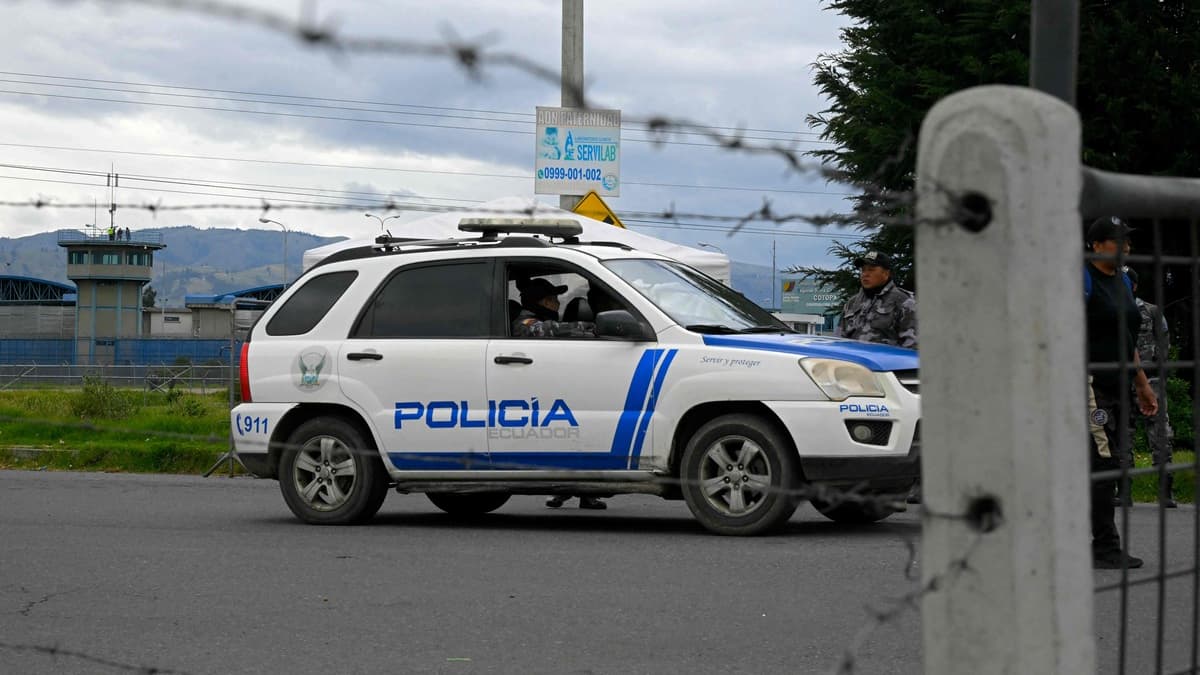Twelve people, including judges and a former deputy, were arrested in Ecuador on Monday as part of a “purge operation” against officials suspected of being linked to the drug trade, the attorney general's office said.
• Also read: Military abuses, the hidden face of the state of emergency in Ecuador
• Also read: Family of “Fito,” a fugitive Ecuadorian gang leader, deported from Argentina
According to a press release broadcast on and from provincial officials. The operation took place in the same Pacific Coast Province, one of the provinces most affected by drug trafficking.
Two firearms, luxury watches, jewelry and thousands of dollars in cash were discovered in the home of former MP Pablo Muentes, a member of the Christian Social Party (PSC), who was among those arrested, said Attorney General Diana Salazar.
These people are suspected of making “legislative politics, the judiciary and the drug trade work hand in hand (…),” explained Ms. Salazar, hailing this new operation as a “purge of what the country needs.”
This case is an example of how corruption “emanating from the highest levels of local politics” has corrupted “the administration of justice in one of the country's most important provinces.”
With “Metastasis, we begin to clean up the sectors contaminated by drug trafficking”, she welcomed the extensive investigation into her services that led to the arrest in December of about thirty officials, including judges, prosecutors, police officers and prison officers, all suspected , being involved in organized crime related to drug trafficking.
Dozens of judges, politicians, prosecutors, police officers and a former prison director have been accused of granting favors to gangsters in exchange for money, gold, prostitutes, apartments and other luxuries.
“Undercover” state
In December, the U.S. ambassador to Quito, Michael Fitzpatrick, warned that Ecuador's justice system was seen as a “jackpot” for drug traffickers seeking to infiltrate the state and operate with impunity.
At the end of February, Ms. Salazar judged that “a large part of the state was infiltrated by organized crime and drug trafficking.”
In August, just before the first round of presidential elections, one of the favorites of the vote, Fernando Villavicencio, an investigative journalist who had uncovered several corruption scandals involving high-ranking officials, was assassinated.
Pablo Muentes, the former parliamentarian arrested this Monday, “was one of the five parliamentarians who threatened my father's life,” commented one of Mr. Villavicencio's daughters on the X network. “We always wanted this bandit to be investigated. Now the downfall of these white-collar criminals begins,” she said.
Ecuador, plagued by the trade in cocaine manufactured in Peru and neighboring Colombia, experienced an unprecedented explosion of violence in early January after public enemy number one, alias “Fito,” the leader of the country's most powerful criminal gang, escaped on the run.
Young President Daniel Noboa has since declared a state of emergency and declared war on some twenty gangs linked to Mexican cartels and the Albanian mafia, now considered “terrorists” and belligerents in an “internal armed conflict.”
This measure enabled the use of military forces on the streets and in prisons. Since then, security forces have arrested more than 7,500 people and seized around 65 tons of drugs.

